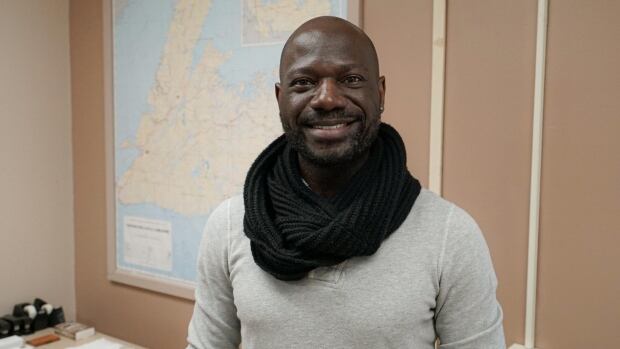
Q&A: How this MUN professor creates change through education, advocacy and support
CBC
Sulaimon Giwa's career path has some twists and turns. He once wanted to be a police officer but quit police college out of the blue one day. He worked as a professional dancer, and once considered sex work.
But he found his true passion in academia, even if it wasn't a linear path, and Giwa is now an associate professor and the interim dean of Memorial University's school of social work.
As a scholar, Giwa has offered courses about the rhetoric and reality of calls to defund police forces.
Giwa is looking at LGBTQ newcomers to Canada and other understudied groups, to help policymakers discover the type of support and services members of the communities need.
He also researches racial profiling, systemic racism and diversity and inclusion and is on a long list of committees, boards and advisory groups.
Giwa has been named one of CBC's Black Changemakers in Atlantic Canada for 2023. He spoke with CBC News about his life, career and research.
This interview has been edited for length and clarity.
Q: At one time you wanted to become a police officer. What can you tell me about that and why you wanted to be a police officer?
A: It's always been a passion of mine, when I was a little boy still living in Nigeria.… A lot of my formative education was really at a military school.… The discipline, the military culture was something that was steeped into me from a young age. I think that just reflected who I was as an individual and my aspirations for wanting to get involved in public service and giving back to the community.
My father really drove my myself, my brother into Boy Scouts … and then when we moved here to Canada, it's something that I continued … all the way up to the chief scout.
I was looking for other ways that I can still be involved in this paramilitary culture and I enrolled in air cadets. So I did that until I "retired" and that's really when I actually got accepted into police college.
I did my two years there and as I was finishing, thinking about joining the police organization, it just dawned on me that maybe perhaps that's not really what I wanted to be doing necessarily in terms of arresting people and putting them in jail and that be that be the end of it. I wanted to find other ways that we can actually still intervene in people's lives in meaningful ways that will support people who are coming into conflict with the law.
What changed your mind to change … the direction of your life?
At one point I was dancing as well, in Vegas, so as a professional dancer. So I mean one could ask why I didn't pursue that continuously … and the answer to that would have been that my mom. Essentially she just said that, "Well, maybe you should think about other things beyond dancing because a dancer's career is really, really short.''




















 Run 3 Space | Play Space Running Game
Run 3 Space | Play Space Running Game Traffic Jam 3D | Online Racing Game
Traffic Jam 3D | Online Racing Game Duck Hunt | Play Old Classic Game
Duck Hunt | Play Old Classic Game